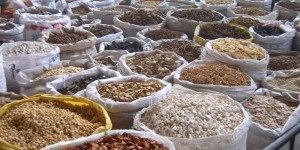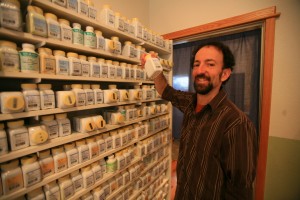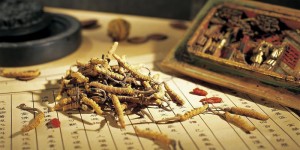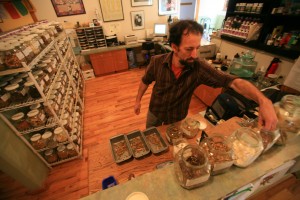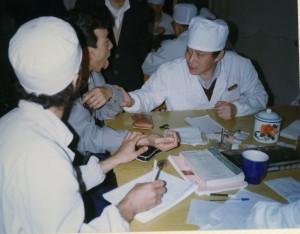Chinese herbs are often important and powerful adjuncts to acupuncture treatment. And Chinese herbal medicine just on its own is a powerful method of healing. If acupuncture works with balancing the ‘qi’, the herbs can be said to work by directly building the ‘blood’. They can add something that is just not there anymore, a spark or an element, doing more than ‘rearranging the deck chairs’ as acupuncture can do so wonderfully.
Chinese herbal therapy is an important part of treating any long-term internal imbalance in the body, and for a whole host of symptoms and illnesses can be effective, sometimes in ways no other healing system can be. It’s such a wide world of formulas and patterns that it’s really almost best to call and ask about your particular situation than just listing everything on the sun. Some conditions respond better than others, it depends on the individual as well. Determining this is where an experienced practitioner can be somewhat invaluable, and why in Asian culture the doctor is considered better with aging – rather than becoming obsolete.
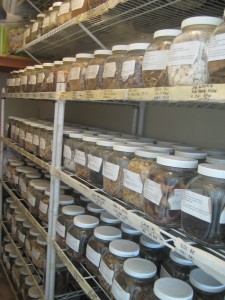
bulk herbs
Modern (Western) pharmaceutical drugs are usually successful to control symptoms but do not always alter the disease process. For example: antibiotics kill bacteria but do not improve a person’s resistance to infection; diuretics drain excess fluid from the body but do not improve the kidney function. Chinese herbs can also rid the body of disease but they also nourish and balance the body in very specific ways, thereby improving organ function and building up a person’s constitution and immune system.
In general the Chinese herbs, and the ancient theory behind them, aim to enhance the ‘post-natal Spleen Qi” system of creating healthy blood through improving digestion and respiration, or through enhancing the ‘pre-natal Kidney Qi” system of strengthening deeply the hormonal and glandular system. In either or both cases – often people report feeling measurably better in a short amount of time in terms of energy, sleep, and sense of well-being
There is more research all the time about how the herbs work pharmacologically. Amazing herbs like Tian Qi/San Qi (Rx. pseudoginseng) are able to somehow just “do what needs to be done” – affecting the intelligence of the cardiovascular system to either thicken or thin the blood, according to circumstances.
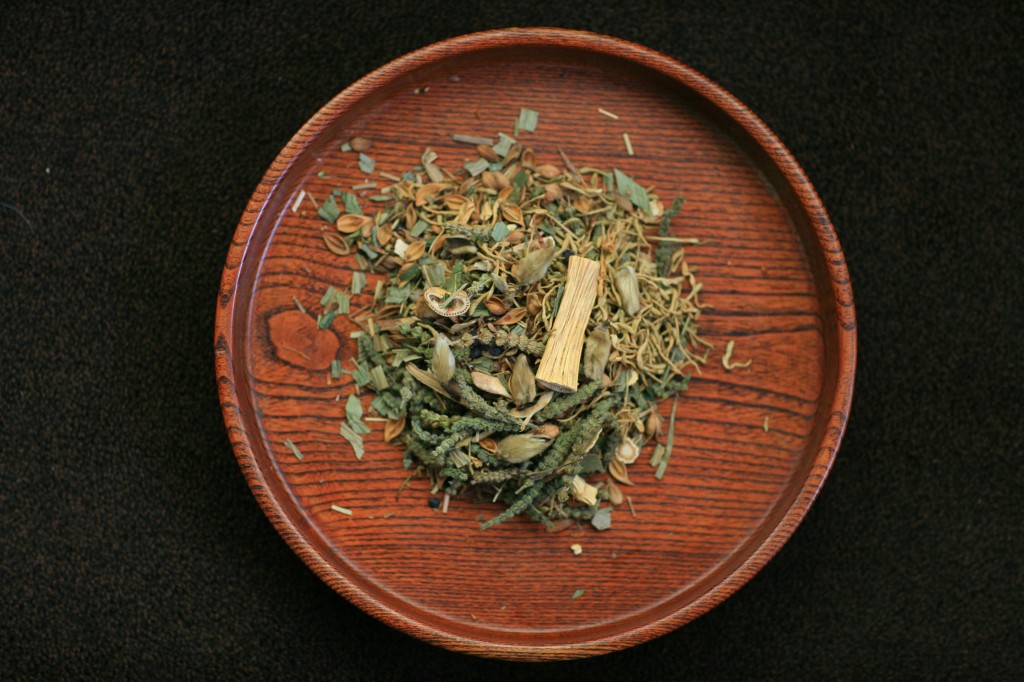
Chinese herbs were traditionally given as a very strong tea, prepared from raw, bulk herbs. These are taken home and boiled as tea – this is more and more rarely done in this culture – but I think it is still an essential for treating upper respiratory infections particularly. When we prescribe a bulk formula, it is most probably for your acute respiratory condition – 3 bags of herbs to last for a one week period. The benefit of this method is both in the customization and truly traditional method of a water decoction that allows for more leafy substances to be more aromatically immediately available.
My feeling is that all acupuncturists would benefit from at least carrying bulk herbs in case of a flu outbreak, and that this would be of benefit to the community at large if it came to that. Because of this we carry an extensive selection of bulk herbs primarily for Lung issues
Most often we prescribe granules from Taiwan (KPC), Evergreen, or Classical pearls, which easily stirred in water and used without difficulty. We also carry a wide array of herbs in pill form, external remedies, and so on.
Asian Herbalists have long sought out special herbs that can be taken as “tonics” – enhancing energy, increasing resistance to disease, and prolonging life. Sometimes they are labeled as “adaptogens” and they are often used eclectically by naturopaths and others in supplement blends – and tend to be marketed well as they can be shown to have active ingredients that are lab-measurable and identifiable. Although sometimes a good approach – stronger and more concentrated is not always better and can even lead to setbacks if an individuals constitution and condition are not properly understood.
Herbs well known such as ginseng, astragulus (huangqi), lycii berries (gougizi), cordyceps, and so on are widely available – and there are many other great tonics that are both popular and well-known, and not. Not as well known as these single tonic herbs are tonic formulas that might not be as flashy as the single-herbs but are really more amazing in how they synergetically and very specifically strengthen the body. For example formulas based on “Liu Wei Di Huang Wan” (Rehmannia 6) as their core treats conditions like diabetes, macular degeneration, osteoporosis, infertility, asthma, high blood pressure, and much more.
Chinese Herbs are prescribed based on a detailed differential diagnosis and application of TCM theory. Many studies over the years show that Chinese Herbs are much more effective when prescribed this way rather than being chosen by ‘ideas’ of how they can be used for a super-formula. Time-tested remedies, evolved over centuries, seem to digest better and so be better utilized by the inherent wisdom of the biology of the body. We can utilize the knowledge of modern science in choosing herbs for certain conditions for sure, but the basis of a formula is best, and safest, to be left in the Traditional realm.
However at times a more symptomatic approach is quite appropriate and understandable. Self-prescribed use of cold remedies and basic patent (pill) remedies is appropriate when one has some understanding about one’s own condition and needs.
Integrating Chinese herbal medicine can often be a less costly approach and more deep, specific, and thorough traditional outlook as compared to a very large supplement regime, or at least can function to replace an overly eclectic herbal protocol based on marketing. Chinese herbs can also be used to reduce the dosage or prevent the side-effects of other medications.
I often work alongside other practitioners – both modern and eclectic practitioner (perhaps a homeopath, naturopath or functional medicine-oriented MD or DO) . It is particularly helpful to have chosen a doctor who is open to reducing or finding alternatives to the modern approach and who is open-minded to working with Chinese herbal medicine. Always find someone who has very good communication and rapport with you.
Modern TCM hospitals in China have Chinese Herbal Medical Doctors working as specialists in each of the various departments, side-to-side with their allopathic colleagues in Gynecology, Dermatology, Pediatrics, Internal Medicine, and so on. The most promising students at a TCM hospital in China are usually chosen to be herbalists – as their scope of practice is much more internal medicine oriented, and the use of strong herbals is more dependent on precise diagnosis than for acupuncture.
It would take lifetimes to fully understand the tradition of Chinese herbs, the pharmacopeia taught in U.S. Chinese medicine schools alone contains over 300 herbs and hundreds of formulas. The full and living herbal tradition well encompasses schools, methods, and realms of diagnosis from many cultures that became incorporated into what we think of as “China”. Some of the herbal traditions happened in isolation in large family clans, and some were developed out in the frontier, such as what Ing “Doc” Hay did in John Day, Oregon in successfully treating syphilis.

